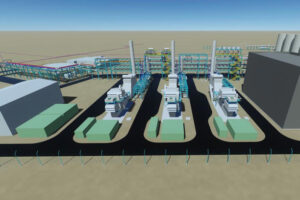Can the good state produce good energy?
The Brexit vote didn’t so much shift the tectonic plates of British politics as smash them to pieces. Accepted realities are being challenged, for better and worse.
The flip side of highly concerning interventions such as quotas on workers from overseas is that we are now working with a government that believes it should intervene in markets where they don’t serve the needs of society.
Greg Clark has tried to put forward the beginnings of how that intervention might work in the context of business and industry. Industrial policy may have been a dirty word pre-Brexit – although I am not sure what the Northern Powerhouse was if it wasn’t an industrial policy – but now this government is talking in terms of making its own investments in infrastructure, or encouraging the same from the private sector, to produce an economy ‘that works for everyone’.
Central to that vision is the green economy, one of the success stories of the UK economy and perhaps one of the few sectors which is contributing to the ‘rebalancing’ back towards manufacturing which is felt to be central to increasing productivity and in turn the wages of ‘ordinary working people’.
Investment in the green economy has a double benefit in that it not only creates jobs (it is literally ‘home grown’) that are resistant to the forces of globalisation, it also helps reduce the cost of producing energy over time. Energy costs are a drag on productivity and growth and green technologies are proven performers in terms of cost reduction – as opposed to riding the ‘rollercoaster’ of market volatility. Investment in green energy has a direct and real impact on the aim of reducing energy costs for the economy as a whole and for bill payers specifically.
Recent history has shown that the green economy is highly responsive and sensitive to changes in government policy. In spite of the changes and often frustrating uncertainty and indecision, it delivered £37bn of investment in our creaking energy infrastructure between 2010 and 2014. Green technologies have the power to transform our economy into one that not only competes in the global market but also generates real benefits for society and the environment of this and the next generation of ‘ordinary working people’.
Photo by Tim Green aka atoach 















